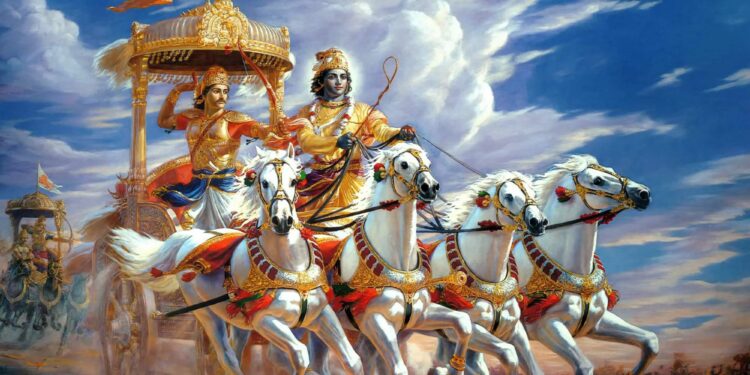TEXT 64
rāga-dveṣa-vimuktais tu
viṣayān indriyaiś caran
ātma-vaśyair vidheyātmā
prasādam adhigacchati
SYNONYMS
rāga—attachment; dveṣa—and detachment; vimuktaiḥ—by one who has become free from; tu—but; viṣayān—sense objects; indriyaiḥ—by the senses; caran—acting upon; ātma-vaśyaiḥ—under one’s control; vidheya-ātmā—one who follows regulated freedom; prasādam—the mercy of the Lord; adhigacchati—attains.
TRANSLATION
But a person free from all attachment and aversion and able to control his senses through regulative principles of freedom can obtain the complete mercy of the Lord.
PURPORT
It is already explained that one may externally control the senses by some artificial process, but unless the senses are engaged in the transcendental service of the Lord, there is every chance of a fall. Although the person in full Kṛṣṇa consciousness may apparently be on the sensual plane, because of his being Kṛṣṇa conscious he has no attachment to sensual activities. The Kṛṣṇa conscious person is concerned only with the satisfaction of Kṛṣṇa, and nothing else. Therefore he is transcendental to all attachment and detachment. If Kṛṣṇa wants, the devotee can do anything which is ordinarily undesirable; and if Kṛṣṇa does not want, he shall not do that which he would have ordinarily done for his own satisfaction. Therefore to act or not to act is within his control because he acts only under the direction of Kṛṣṇa. This consciousness is the causeless mercy of the Lord, which the devotee can achieve in spite of his being attached to the sensual platform.
TEXT 65
prasāde sarva-duḥkhānāṁ
hānir asyopajāyate
prasanna-cetaso hy āśu
buddhiḥ paryavatiṣṭhate
SYNONYMS
prasāde—on achievement of the causeless mercy of the Lord; sarva—of all; duḥkhānām—material miseries; hāniḥ—destruction; asya—his; upajāyate—takes place; prasanna-cetasaḥ—of the happy—minded; hi—certainly; āśu—very soon; buddhiḥ—intelligence; pari—sufficiently; avatiṣṭhate—becomes established.
TRANSLATION
For one thus satisfied [in Kṛṣṇa consciousness], the threefold miseries of material existence exist no longer; in such satisfied consciousness, one’s intelligence is soon well established.
TEXT 66
nāsti buddhir ayuktasya
na cāyuktasya bhāvanā
na cābhāvayataḥ śāntir
aśāntasya kutaḥ sukham
SYNONYMS
na asti—there cannot be; buddhiḥ—transcendental intelligence; ayuktasya—of one who is not connected (with Kṛṣṇa consciousness); na—not; ca—and; ayuktasya—of one devoid of Kṛṣṇa consciousness; bhāvanā—fixed mind (in happiness); na—not; ca—and; abhāvayataḥ—of one who is not fixed; śāntiḥ—peace; aśāntasya—of the unpeaceful; kutaḥ—where is; sukham—happiness.
TRANSLATION
One who is not connected with the Supreme [in Kṛṣṇa consciousness] can have neither transcendental intelligence nor a steady mind, without which there is no possibility of peace. And how can there be any happiness without peace?
PURPORT
Unless one is in Kṛṣṇa consciousness, there is no possibility of peace. So it is confirmed in the Fifth Chapter (5.29) that when one understands that Kṛṣṇa is the only enjoyer of all the good results of sacrifice and penance, that He is the proprietor of all universal manifestations, and that He is the real friend of all living entities, then only can one have real peace. Therefore, if one is not in Kṛṣṇa consciousness, there cannot be a final goal for the mind. Disturbance is due to want of an ultimate goal, and when one is certain that Kṛṣṇa is the enjoyer, proprietor and friend of everyone and everything, then one can, with a steady mind, bring about peace. Therefore, one who is engaged without a relationship with Kṛṣṇa is certainly always in distress and is without peace, however much he may make a show of peace and spiritual advancement in life. Kṛṣṇa consciousness is a self-manifested peaceful condition which can be achieved only in relationship with Kṛṣṇa.



















